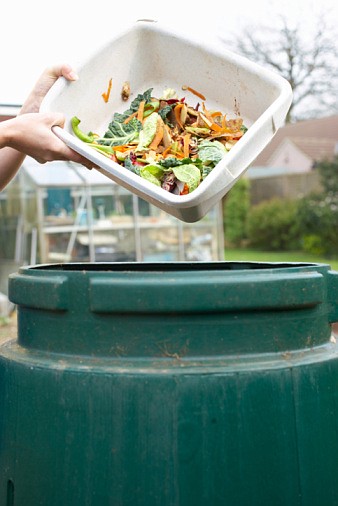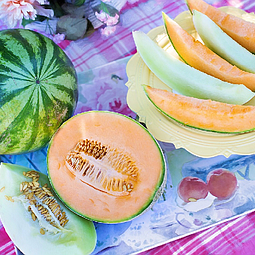The benefits of composting and how to start it in your home
January 9, 2012 at 8:26 a.m.
With food residuals and yard waste constituting about 26 percent of the solid municipal waste in the United States, composting provides an important environmental benefit by reducing the burden on landfills. But beyond green reasons, composting helps create a useful organic waste product that would otherwise simply go to waste (pun intended!).
Benefits of Composting
In a nutshell, composting saves resources, money, and planet earth. Less garbage thrown out by your household means less waste filling up landfills. As more and more people implement composting in their households, waste management collection costs are reduced.
Like hair conditioner, compost applied to soil, especially in the spring and fall, helps to protect your soil from drying out. Your soil (particularly, loose soil) is then better able to retain moisture, which means less watering and lower water bills. On the other hand, compost helps clay soil drain better. Composting helps protect your plant roots from wind and sun damage as well as improve your soil's pH levels. Because of its high nutrient content, compost also reduces disease in your soil.
How to Start Composting
Choose your composting site. Let's be honest. Compost piles can reek. It's best to place your pile away from your house in an area that isn't too sunny. Because your compost pile needs good drainage, place it on ground rather than concrete.
Construct you pile. You can purchase commercially available compost bins or simply contain your pile using chicken wire. Alternatively, simply arrange your pile neatly on the ground.
Add your compost material. In a nutshell, compost requires three ingredients: browns (dead branches, leaves, and twigs), greens (grass clippings, coffee grounds, and fruit and vegetable waste), and water. The green materials create nitrogen, the brown materials furnish carbon, and the water helps the organic materials break down. Some people add newspaper, dryer lint, and cardboard as other "carbon-rich" items. Equal amounts of greens and browns along with different-sized materials are most ideal.
Turn your pile every other day. Use a pitchfork or shovel when turning your file to improve circulation and oxygen incorporation.
Water your pile. Your compost pile should have the texture and consistency of a wet sponge. Either over or under watering can slow down decomposition.
Use your compost. When your compost turns dark brown and is crumbly, it's ready to apply to your soil.
While earthworms, especially red earthworms, help your pile decompose faster, human or pet waste, meat scraps, fat, black walnut leaves, charcoal ashes, glossy paper, diseased plants, or materials sprayed with pesticides should never be added to a compost pile.
Content Provided by Spot55.com





